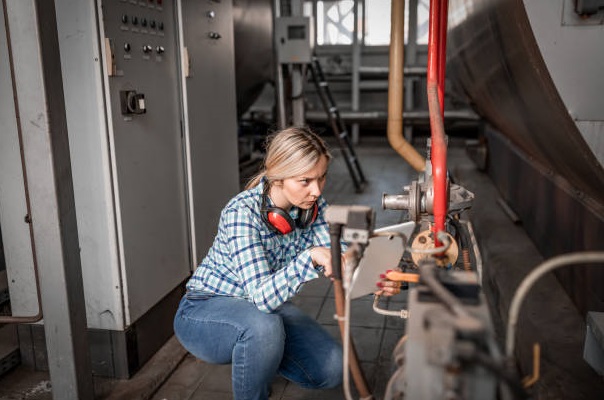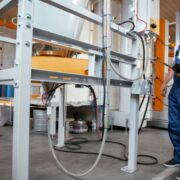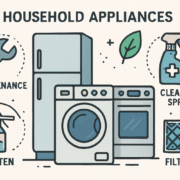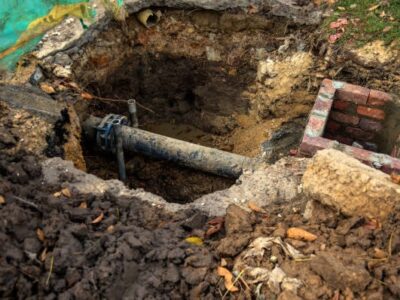Modern living depends on gas appliances, which offer consistent answers for heating, cooking, and water settings. Over time, these configurations can, however, cause problems that result in inefficiencies, safety hazards, or total breakdown. This guide explores common challenges gas installations face and highlights when a gas systems expert is needed to address these concerns.
Signs of Gas Leaks or Odours
A gas fitter should be contacted immediately if there are any signs of a potential gas leak. Unusual odors, often described as sulfuric or rotten egg-like, are an indication of leaks. Leaks can occur in pipes, connections, or appliances, posing serious safety hazards. If a leak is suspected, turn off the supply immediately and ensure proper ventilation.
While little problems could seem under control, fixing leaks calls for the knowledge of a licensed, certified gas mechanic to guarantee compliance with standards and safety. Ignoring such issues could cause mishaps, health hazards, or property damage avoidable with quick response.
Inconsistent Heating Performance
One of the most noticeable issues in gas setups is uneven heating or insufficient output. This could manifest in heaters that fail to warm rooms evenly or water systems that provide fluctuating temperatures. Blockages, faulty valves, or aging components within the installation may cause such inconsistencies.
These issues lower efficiency but also raise energy expenditures. Reliable performance going forward depends on a trained technician diagnosing the root cause and suggesting repairs or replacements as needed. Not only do timely repairs restore functioning, but they also help other related components not be strained unnecessarily.
Ignition or Pilot Light Issues
Pilot lights and ignition mechanisms are crucial for most gas-powered devices. The whole arrangement is useless when these fail to light or stay lighted. Reasons can be low supply line pressure, thermocouple problems, or blocked jets.
Trying to relight pilot lights without knowing the underlying problem might cause more damage or perhaps endanger others. A licensed professional can assess these components, ensuring proper ignition and safe operation of the appliance. Regular inspection of ignition features can help avoid unexpected interruptions during critical moments.
Unusual Noises from Appliances
Hissing, banging, or whistling sounds coming from gas equipment can indicate underlying problems. These noises may point to loose connections, internal blockages, or pressure imbalances. For example, hissing often signals a leak, while banging may indicate sediment buildup in water heaters.
Addressing such noises promptly helps prevent the escalation of minor issues into more significant and costly repairs. A skilled technician can recognize the source and offer effective solutions to restore efficient and quiet operation. Early attention to these sounds often results in quicker, less expensive resolutions.
Inefficient Fuel Consumption
Uncovering inefficiencies in the system, a rapid rise in gas demand without corresponding changes in family or commercial consumption patterns can point to Often this result from clogged parts, incorrect calibration, or worn-out components. In addition to raising expenses, unregulated higher fuel usage might impair appliance lifetime.
Regular maintenance and thorough inspections by a qualified specialist can find and fix these inefficiencies, therefore saving money and raising general performance. Small adjustments made during routine checks can also enhance efficiency over time.
Issues with Ventilation or Exhaust Systems
Proper ventilation and exhaust components are essential for the safe operation of gas appliances. Blocked or broken vents can cause dangerous gasses like carbon monoxide to build up. Unusual smells, moisture, or discoloration close to appliances indicate inadequate ventilation.
Addressing ventilation concerns requires specialized tools and expertise to ensure exhaust systems function correctly. A qualified technician can evaluate and fix these components, therefore preventing possible health risks. By preserving ideal running conditions, good ventilation also prolongs the life of machines.
Importance of Regular Gas Appliance Inspections
Gas appliances’ safe and effective operation depends on regular inspections. Components may deteriorate with time, connections may loosen, and installations may show subtly occurring problems not immediately obvious. A licensed technician can evaluate your appliances’ state during an inspection, look for leaks, and test their efficiency.
They might also see early wear and advise preventative actions to stop future expensive repairs or replacements. Regular checks guarantee that appliances run within safety criteria and satisfy legal requirements, therefore preserving optimal performance.
Annually or after major use changes, scheduling these inspections will give you peace of mind and help your equipment last longer. Regular inspections help to reduce hazards using consistent maintenance, thereby optimizing functionality and ensuring the smooth functioning of your house or business.
Dealing with leaks, pilot light troubles, or poor setups calls for a gas fitter vital. By quickly addressing these issues, property owners guarantee everyday operations’ safety, efficiency, and peace of mind. The timeliness of repairs and skilled maintenance guarantees that gas systems run best for years to come, therefore lowering dangers and improving general dependability.
If you want morе еxciting contеnt visit. Globallyviz.com














Comments